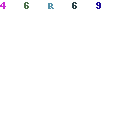Philosophy speaker emphasizes the importance of examining credulity
Credulity and its damaging effects on society and various social institutions were discussed by distinguished philosophy professor Susan Haack at the annual Fritz Marti lecture on April 2.

Dr. Susan Haack, an author and professor at the University of Miami (Fla.) speaks about the importance of credulity at the annual Fritz Marti Lecuture April 2. (Photo by Joseph Lacdan)
Haack, an author and a leading voice in pragmatic philosophy, spoke about the different ways credulity can affect important court decisions, the credibility of universities and the outcomes of political races. Credulity is defined as a person’s tendency to believe in something. Haack argues that if people tend to believe in something too easily it can potentially be harmful.
“Credulity – it’s not just a vice, it’s a menace to society,” said Haack, who teaches in the University of Miami’s Philosophy and Law departments. “A credulous man is a danger to himself. He is easily taken in by con men, liars cheats, self-promoters, misinformed (and) the confused. He is also a danger to society. Why? For one thing, epistemological habits are infectious .. Credulous parents will have credulous children. Close-minded parents will have close-minded children. Credulous professors will have credulous students.”
Haack spoke to a room of about 50 people that included students, faculty, former faculty and alumni. Before the speech, which was hosted by the philosophy department, Haack met and interacted with faculty and students in the Dean’s conference room in Peck Hall.
The Miami professor also discussed a growing trend at American universities. She said administrators no longer take the time to verify the credibility of academic work or whether the work was appropriately funded.
“Our universities no less like our justice system are very important social institutions,” Haack said. “But recent changes in the way they are run are contributing to a steady erosion of academic virtues. I think the problem is, at least in part, is administrators’ increasing reliance on surrogate measures of the quality of academic work. They don’t actually read it. What these surrogate measures do is defer judgement to unknown and often unaccountable third parties.”
Haack said that a tendency to be credulous can pave the way for corrupt politicians to take office such as Zimbabwe president Robert Mugabe. Mugabe has been accused of being responsible for the southern African nation’s economic tumble. Haack also discussed how corruption can affect a jury if they too easily believe the testimony of unreliable eyewitnesses who can get confused.
Haack cited the Innocence Project, a non-profit organization that exonerates wrongfully-convicted innocents by the use of DNA evidence. She said the leading cause of wrongful convictions was due to conflict created by bad eyewitness testimony. But credulity toward witnesses wasn’t the only reason for wrongful sentences.
Haack said courts tend to believe the testimony of questionable experts such as the late Texas forensic psychiatrist James Grigson. Grigson earned the nickname “Dr. Death” after testifying in 167 capital trials and most of those cases ended in the death penalty. He was expelled from American Psychiatric Association and the Texas Society of Psychiatric Physicians for misconduct.
“Credulous people actually create the market for those con men and cheats,” Haack said. “And the more people that are more easily duped the likelier it is that charismatic but nutty politicians will go to power, the likelier it is that fake cures will sell briskly, the likelier it is that juries will convict on other bases than the evidence. All of these are very bad social consequences.”
Consequences that could possibly be avoided by examining one’s own credulity and by accepting greater moral accountability.
“We normally think that we’re morally responsible for the things that we do,” said SIUE Philosophy chair Judith Crane. “We don’t normally think that you’re normally accountable or responsible for what you believe.”
Crane said that she hopes the philosophy students who attended the speech will benefit from the topics discussed by Haack, a relevant voice in the field. Haack has penned several books, most notably “Evidence and Inquiry” in 1993. The book discussed Haack’s epistemological theory Foundherentism, which is a theory of justification.
“I would like them to learn about this sort of approach to theory of knowledge which starts off thinking about epistemological character,” Crane said. “I want them to see that ethics might be relevant not just to what we do but what we believe. I would like them to see ways in which philosophy has very practical indications for how we live and what we do. And I would like them to see the way a very accomplished philosopher can present her ideas.”
The Fritz Marti lecture began in 1976 to honor the former SIUE philosophy professor of the same name. Crane said Dr. Marti had a lasting impact on the department.
Filed Under: Philosophy • Pre-Law












